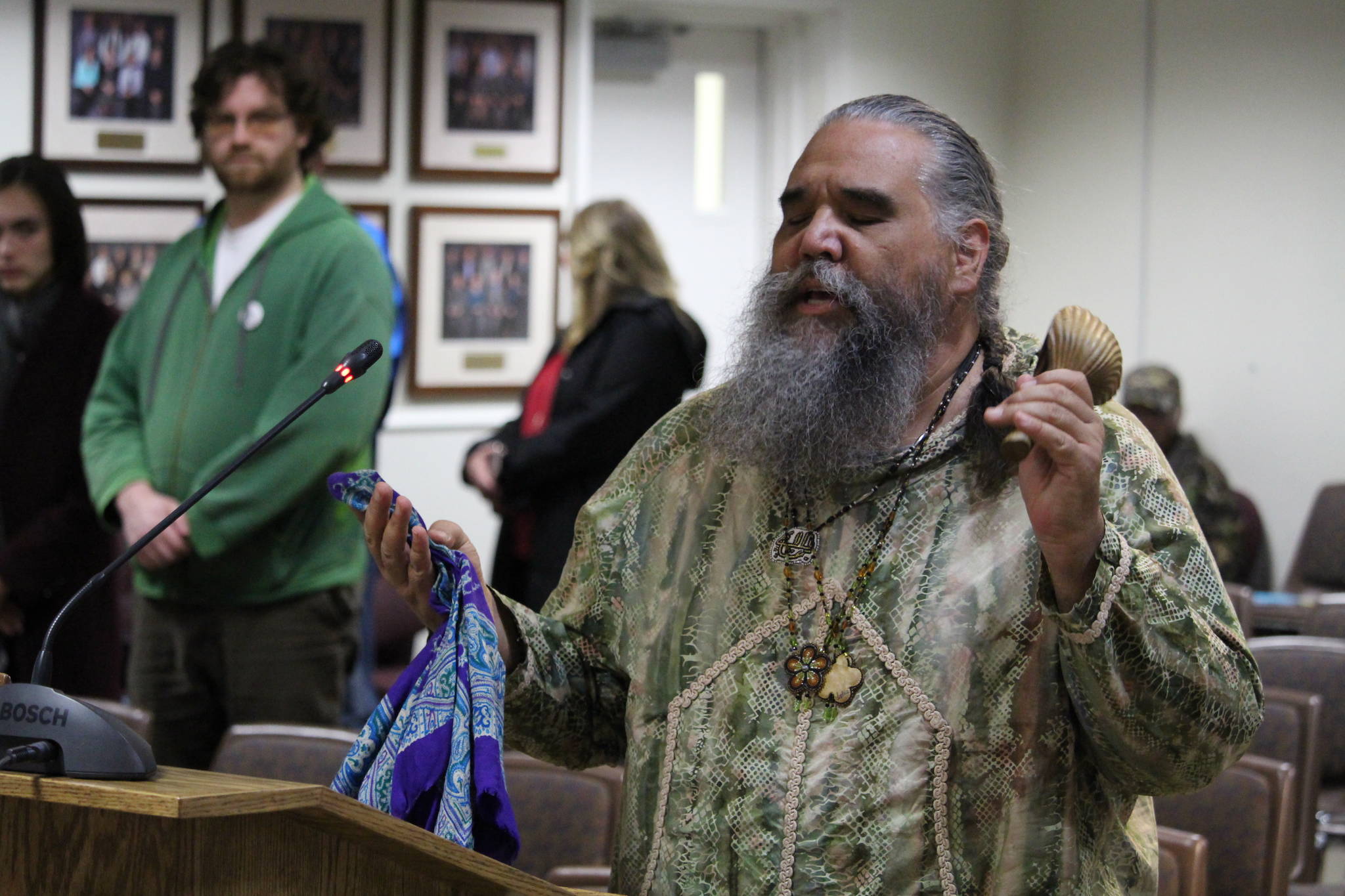The Kenai Peninsula Borough Assembly is taking a torch to the problem of excess brush and woodland debris that has piled up at the landfill.
At last Tuesday’s assembly meeting, assembly members voted in favor of enacting Ordinance 2019-19-14, which will appropriate $150,000 from the borough’s general fund for the costs associated with burning the slash and debris that has filled up the Central Peninsula Landfill this summer.
“There’s been an accumulation of brush at the Central Peninsula Landfill beyond anything that’s been seen in the past,” Assembly member Willy Dunne said Tuesday night.
Dunne said that the large amount of debris can be attributed both to the number of beetle-killed trees that have been impacted by the spruce bark beetle, as well as heightened fire danger on the peninsula that prompted many residents to clear their properties of flammable materials.
There is currently close to 20000 tons of debris at the landfill, which is more than the borough’s staff can handle as part of their normal operations, Dunne said.
The funds appropriated by the ordinance will be used to hire an independent contractor that will conduct a 24-hour burn of the accumulated brush material.
Kenai resident Ben Boettger spoke to the ordinance and suggested composting the brush material rather than burning it.
“When this material is composted, the carbon inside it is put into the soil which is then used for growing plants,” Boettger said. “I encourage you to think of this kind of material more as a resource than as a waste product.”
Boettger recognized that composting might not feasible for the sheer volume of the material currently at the landfill, but asked that they consider the alternative for the future.
Assembly President Kelly Cooper told Boettger that the assembly would be reaching out to him to discuss this alternative.
“It seems to me… that people might be a little burnt out on the idea of more fires,” Kasilof resident George Pierce said about the ordinance. “How about chipping it? You could buy a chipper, I’m sure, for a lot cheaper than it would cost to replace someone’s house. Starting a fire and letting it burn for a week or several days at a time isn’t the way to solve that issue. You’re just asking for more problems.”
Assembly member Jesse Bjorkman expressed concern about a long term solution, saying that beetle-killed trees will continue to be a problem and people will continue clearing their properties in the interest of fire safety. Bjorkman added that it seemed to him that the numbers weren’t adding up when it came to cost.
“I heard a figure of between 400 to 450 hours of equipment time estimated by the borough,” Bjorkman said. “As I break that into 40-hour weeks that’s about 11 to 12 weeks worth of time… I’m not certain that (the cost) to burn this brush wouldn’t be more than $150,000. I’d like to see those figures and have some more answers going forward on how to deal with this woody material.”
Dunne agreed, saying that the ordinance is a one-time solution and there needs to be a long-term plan at the borough level when it comes to dealing with organic waste.
The ordinance passed by a vote of 8 to 1.

